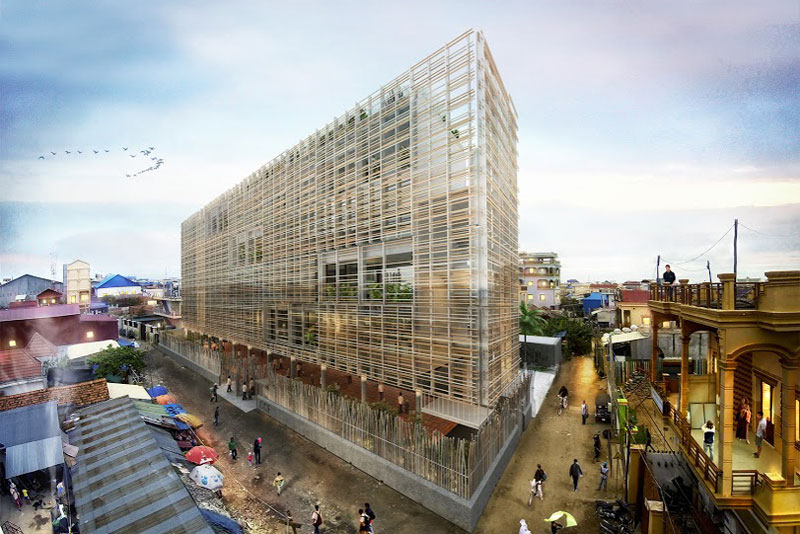The Education Ministry on Tuesday oversaw the groundbreaking of a $4 million high school that will be built on land that was once the municipal dump in Phnom Penh’s Meanchey district.
The state of the art five-story facility, which is being funded by manufacturing giant Velcro Companies, will offer first-class education to many of the children who grew up as scavengers at the dump before it was relocated in 2009, according to Education Minister Hang Chuon Naron.

“I believe this school will be free to attend and it will provide education to those disadvantaged children in that area,” Mr. Chuon Naron said. “We have not discussed the curriculum yet but it …will focus on the STEM subjects—science, technology, engineering and maths.”
The education minister said that the school, called the Neeson Cripps Academy, would be able to cater for upward of 500 students and would employ between 100 and 150 teachers.
“The selection of teachers is very important. However, it will not be a problem to find [teachers], as this new school will offer teachers the opportunity to work more, get more experience, and get paid more,” he said.
While it will be operated by the Cambodian Children’s Fund, an NGO that works with impoverished families at the former Steung Meanchey dump, the new facility will be under the authority of the Education Ministry, Mr. Chuon Naron said.
CCF country director Sok Channoeurn said construction began Tuesday and that the school, which was designed free of charge by CookFox Architects of New York, would be open in time for the commencement of the 2016 school year.
“The first pilons are in the ground and it is our plan to open in October next year,” she said.
Ms. Channoeurn said it remained unclear how the new school—named after Scott Neeson, the founder of CCF, and Robert Cripps, the former Velcro chairman—would cover operating costs, which would be between $500,000 and $1 million annually.
“We need to discuss with donors about operations costs; it’s going to be expensive,” she said.
CCF reported $11.1 million in revenue and $2.7 million in surplus funds in 2014, and a $4.4 million surplus in 2013, according to tax documents posted to its website.
Ms. Channoeurn said that at the moment, CCF is on a recruitment drive, scouring the country for the best teachers.
“We have recruited teachers from universities majoring in maths, science and technology but we are having more discussions with the Ministry of Education,” she said, adding that CCF also has partnerships with international schools in the city to help fill its teacher ranks.
“We won’t pay much higher than other schools, however, if we have to get experts to fill expectations, we will pay,” she said. “People who work [for CCF] are working for the purpose of charity, so they don’t expect big pay.”



